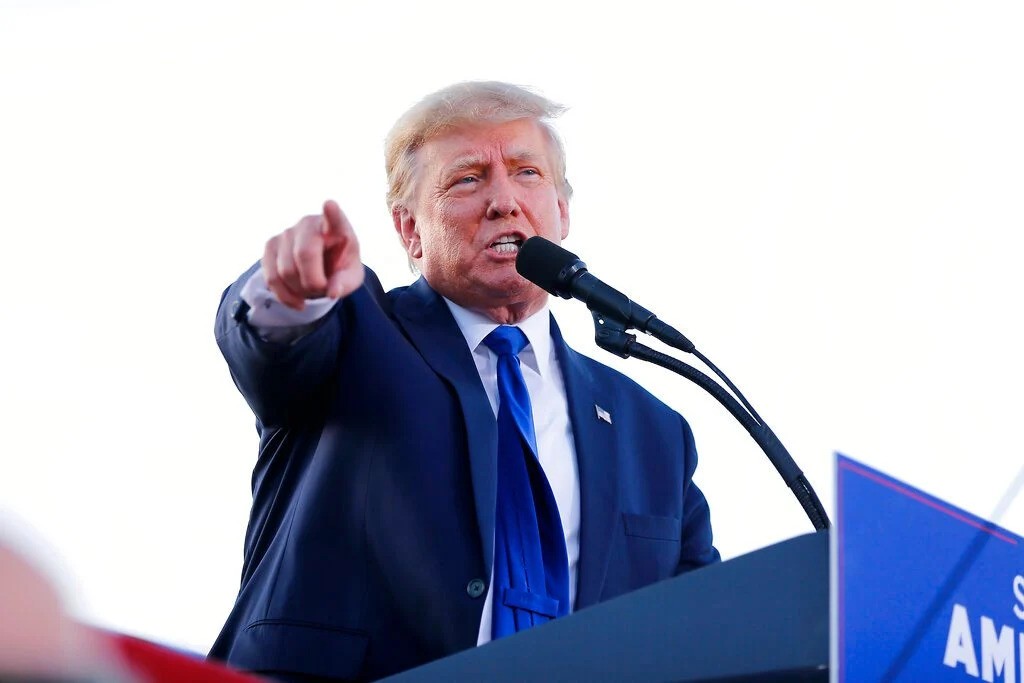The recent injunction issued by Judge John Coughenour of the Western District of Washington represents the second judicial block against President Donald Trump’s executive order aimed at changing birthright citizenship policies.
The order, which aimed to deny automatic citizenship to children born on U.S. soil to parents in the country without legal status and was slated to take effect on Feb. 19, has sparked significant legal and constitutional debate.
However, it is clear that change cannot occur through executive powers alone. It requires a change to the U.S. Constitution.
The legal challenge to Trump’s order primarily centers on the 14th Amendment to the U.S. Constitution.
The amendment states: “All persons born or naturalized in the United States, and subject to the jurisdiction thereof, are citizens of the United States and of the State wherein they reside.”
This provision has historically been interpreted to guarantee birthright citizenship to almost all individuals born in the country unless they are children of foreign diplomats, foreign enemies or Indian tribes subject to tribal laws. The citizenship of children born in U.S. territorial waters and the high seas is also determined by their parents’ citizenship.
The Trump administration’s aim to redefine the amendment’s scope likely responds to the many critiques regarding the separation of families, where migrant parents of a citizen are deported and forced to leave their child behind in the U.S.
If a child is only considered a citizen when one of their parents is also a citizen, that could resolve the issue. Migrants and their children who cross the border illegally would be sent back home altogether. The separation of families would no longer be deemed necessary in the eyes of the law.
However, this raises crucial constitutional questions. In his ruling, Coughenour emphasized this concern by stating that changes to birthright citizenship must occur through a constitutional amendment rather than executive action. Coughenour’s decision is warranted, as an executive order cannot supersede a constitutional provision.
The principle of birthright citizenship has been deeply embedded in American legal tradition since the Supreme Court’s ruling in United States v. Wong Kim Ark, 1898, which affirmed the constitutional guarantee of citizenship to children born on U.S. soil. Any attempt to circumvent this precedent through executive action would likely be deemed unconstitutional.
Opponents of birthright citizenship argue that it creates incentives for unauthorized immigration and promotes birth tourism, where expecting mothers travel to the U.S. to secure U.S. citizenship for their children. While this issue is contentious and warrants evaluation and consideration, any change to birthright citizenship must be pursued through the appropriate legislative or constitutional processes rather than through executive overreach.
Moreover, Trump’s order could result in considerable legal and logistical challenges. Denying citizenship to children based on their parents’ status might create a class of stateless individuals, depending on the laws of their home country. This contradicts international human rights standards and would create difficulties for the affected families and the government agencies responsible for determining citizenship.
While many American citizens who voted for Trump are understandably frustrated by the consequences of the Biden-Harris administration’s open border policies and their implications, it is vital to be realistic about the work necessary to tackle the lingering challenges and determine the best path forward as a nation. The judicial injunction against Trump’s order highlights the limits of presidential power and reaffirms the importance of constitutional integrity.
Any alteration to birthright citizenship must be made through a constitutional amendment or legislative action, not through unilateral executive action. The judiciary’s role in maintaining the Constitution is essential in ensuring that any administration, regardless of political affiliation, does not change fundamental rights.






